Last month, Nvidia released its third Pascal video card, the GTX 1060 Founders Edition (FE) video card which beat AMD’s new card, the Polaris RX 480 reference version. We overclocked the Founders Edition and we even pitted it against the overclocked RX 480 and the GTX 980 in a third follow up evaluation. Last Friday, BTR received a $259 EVGA GTX 1060 Superclocked (SC) Gaming edition from EVGA which is factory overclocked by EVGA right out of the box, and we have put it through its paces with what is probably the largest PC game benchmark suite in the English language, 25 games.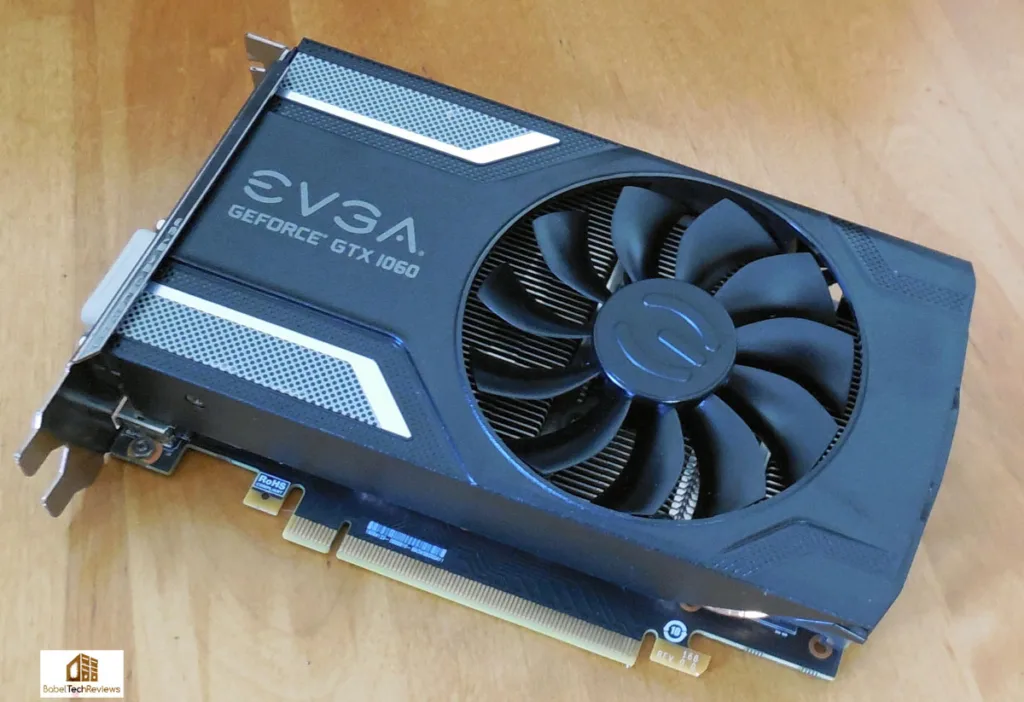
We compare the SC’s performance – at EVGA’s factory overclock and further overclocked by us – with the reference clocked and overclocked GTX 1060 Founders Edition, and also versus the reference RX 480. Since all three cards retail for over $239, they make for a natural comparison, and we will use 1920×1080 and 2560×1440 to help determine the overall value/performance winner.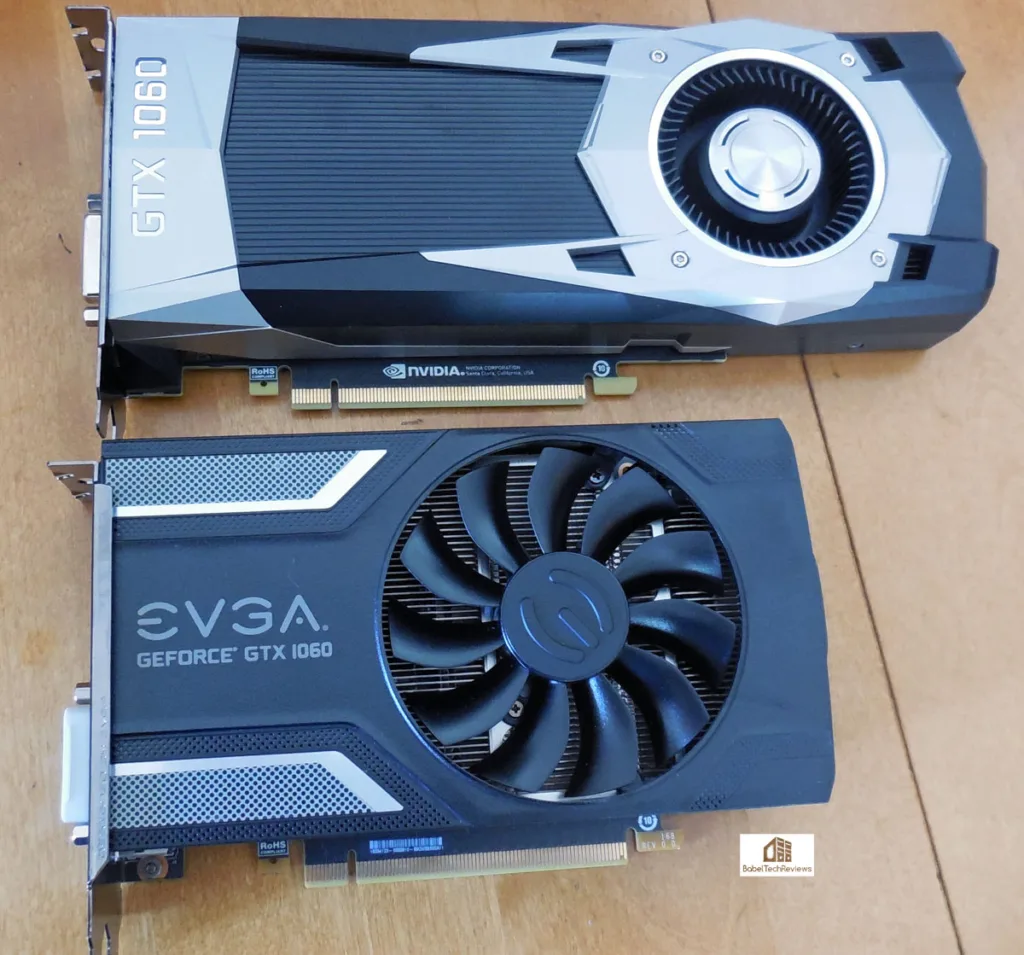
We will not recap Nvidia’s Pascal architecture here as with our GTX 1060 Founders Edition launch article, but will instead focus on the performance of the new EVGA GTX 1060 SC. This evaluation is focused on each card’s performance, primarily comparing the EVGA GTX 1060 SC against the Founders Edition of the GTX 1060, and we will try to answer the question, which card should you buy? We will then place this evaluation into our larger context of 10 video card configurations including the RX 470 and the RX 480 which we call “The Big Picture” to see if you should consider an upgrade or not.
The EVGA GTX 1060 SC Gaming Edition
The EVGA GeForce GTX 1060 featuring EVGA ACX 2.0 cooling arrived with a retail price of $259, or $40 less than the Founders Edition of the GTX 1060 which is priced at $299.
This EVGA GTX 1060 SC is clocked the higher of the two currently available air-cooled GTX 1060 EVGA cards which feature ACX 2.0 cooling technology which was first introduced for their GTX 980. With optimized Swept fan blades, double ball bearings and an extreme low power motor, EVGA ACX 2.0 delivers more air flow with less power, unlocking additional power for the GPU, and the fan will even shut down when the card is not under load.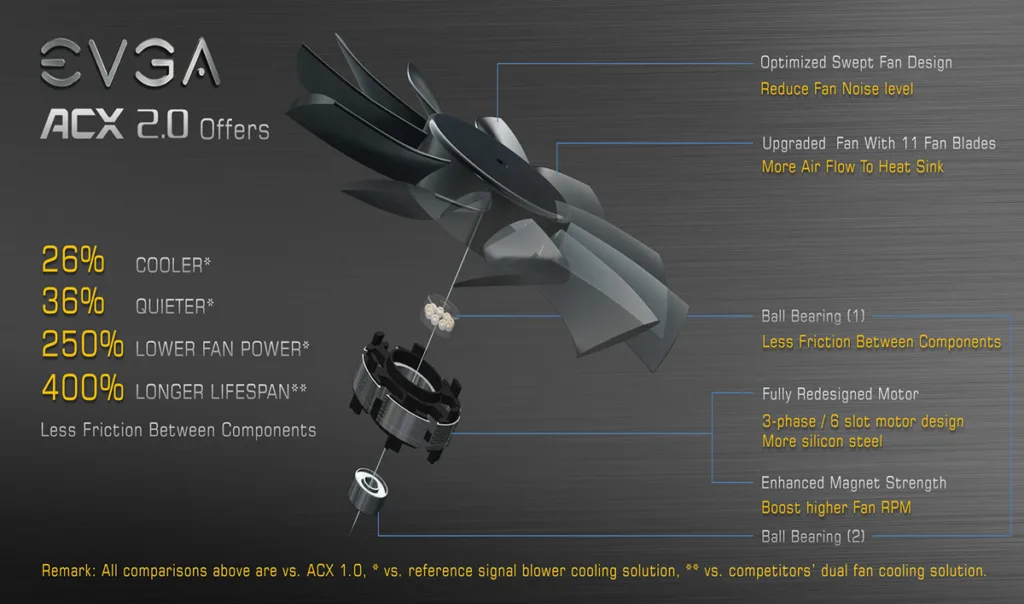
Features of EVGA’s GeForce GTX 1060 SC Gaming Edition:
You can find out much more here. As a recap, here are the specifications and the details for the EVGA GTX 1060 SC Gaming edition: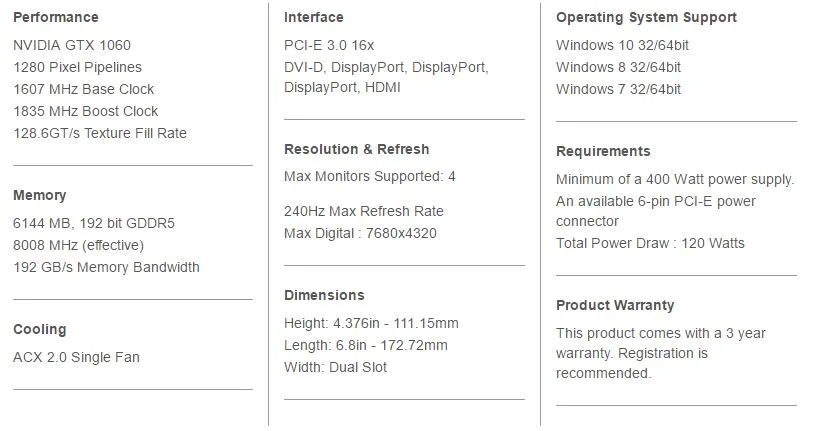
Here are the specifications for the reference Founders Edition of the GTX 1060: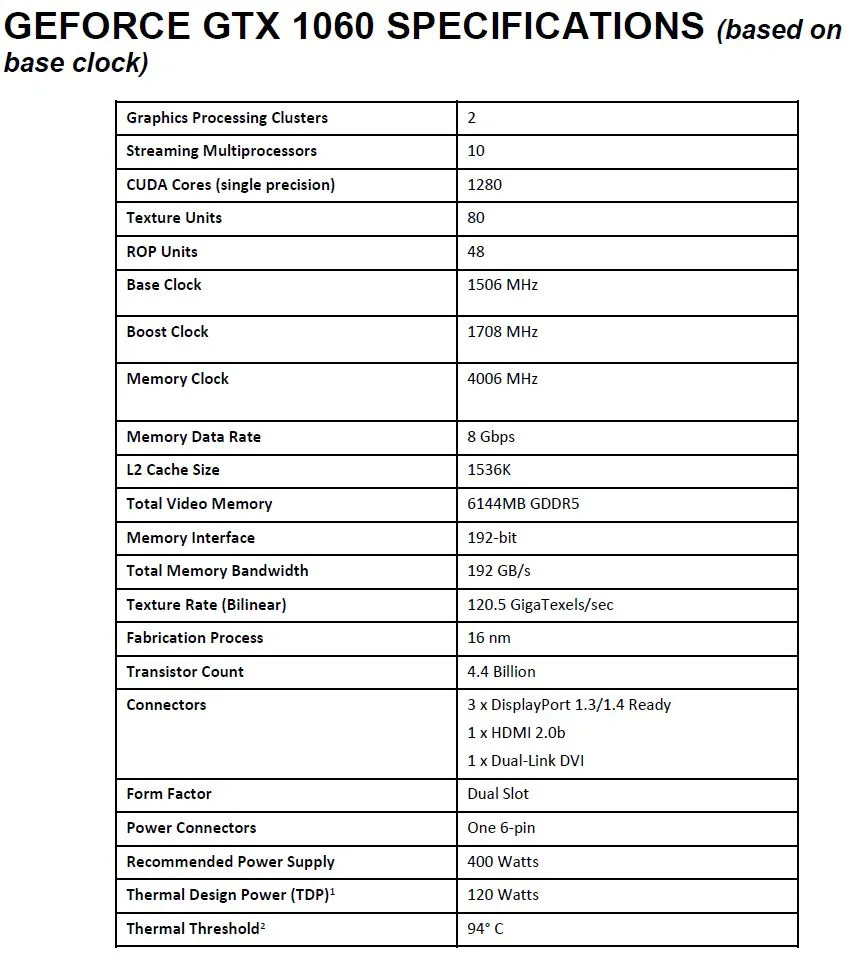
The EVGA GTX 1060 SC’s card’s base clock is 1607MHz, up 101MHz over the reference Founders Edition base clock, and the EVGA boost clock is 1835MHz, 127MHz higher than Nvidia’s guaranteed minimum reference boost of 1708MHz. We will show the boost and base clocks that we actually got compared with our sample of the Founders Edition, and we will also compare both cards clocked as far as we could stably push them including adding extra voltage and/or adjusting the fan profiles.
Notice that the GDDR5 memory is not further overclocked by EVGA. We found we gained some impressive performance by overclocking the memory clocks.
From what we can see, the specifications of the EVGA GTX 1060 SC Gaming Editon are impressive, and it clocked significantly higher than the reference Founders Edition version, and with a quieter cooler. You are also covered by EVGA’s 3-year warranty with a further warranty extension available upon registration within 90 days of purchase.
Our EVGA GTX 1060 SC Gaming Edition ACX 2.0 came directly from EVGA to BTR as a sample, last Friday. EVGA wants to make it very clear that what they sent us is the same as what you can buy from any etailer. EVGA sent out this press release after the release of their GTX 1080 FTW:
EVGA was one of the first graphics card companies to offer overclocked graphics cards, and since day one EVGA always delivered the exact same products to reviewers as well as customers. EVGA does not “fake” reviews or send out products with “tweaked” clockspeeds to reviewers. With EVGA Superclocked, FTW and Classified graphics cards, what you see is what you get.
Learn more at http://www.evga.com/articles/01022/evga-wysiwyg/
Our Big Picture Testbed of Competing Cards
Our testing platform is Windows 10 Home 64-bit, using an Intel Core i7-6700K at 4.00GHz which turbos to 4.4GHz for all cores as set in the ASRock Z7170 motherboard’s BIOS, and 16GB of G.SKILL DDR4 at 3000MHz. The settings and hardware are identical except for the drivers being tested.
Our testbed of competing cards tests 25 games and 2 synthetics featuring our newest 2016 games, Mirror’s Edge Catalyst and DOOM, and we are also including Ashes of the Singularity, Hitman, Total War Warhammer, and Rise of the Tomb Raider using DX12. We have also added Futuremark’s benchmark, Time Spy. We will compare the performance of 25 games at 1920×1080 and 2560×1440 with maximum settings.
This evaluation will pit the stock and overclocked EVGA GTX 1060 SC against the stock and overclocked reference Founders Edition of the GTX 1060, and also against the RX 480. Our bigger picture will further compare performance with the GeForce GTX 1070, the GTX 970 EXOC, and the GTX 960 OC, plus our PowerColor Red Devil RX 470 at reference speeds and the PowerColor 280X.
How does the EVGA GTX 1060 SC compare with its rival, AMD’s Polaris RX 480?
Well, it doesn’t. The RX 480 is generally outperformed by the Founders Edition of the GTX 1060 so an overclocked version like the EVGA GTX 1060 SC will be even faster. Unfortunately, the RX 480 reference version is not a good overclocker.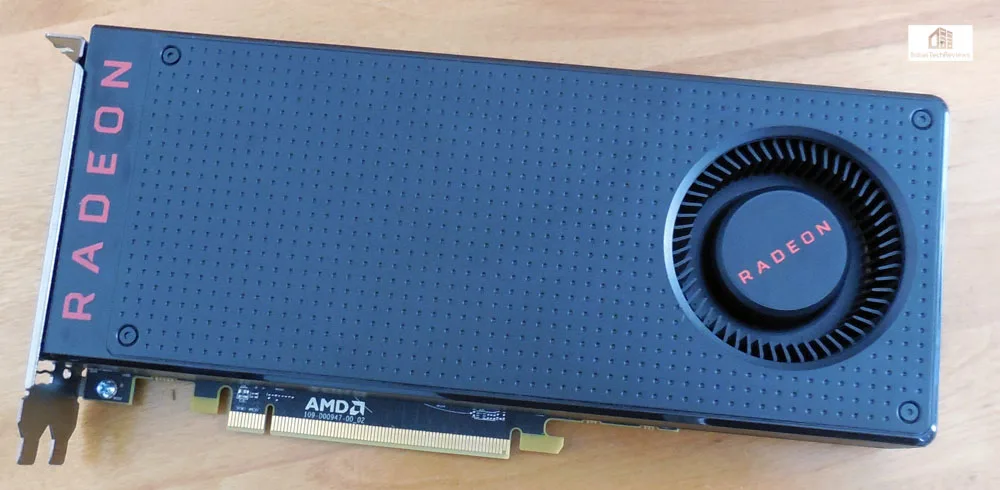
Let’s take a closer look at the new EVGA GTX 1060 SC Gaming Edition ACX 2.0.
Unboxing the EVGA GTX 1060 SC
The EVGA GTX 1060 SC comes in a small box that advertises EVGA is Nvidia’s No. 1 seller in the USA. The box features the Superclocked GTX 1060’s 6GB GDDR5, and that it is ready for VRWorks/GameWorks/G-SYNC/DX12.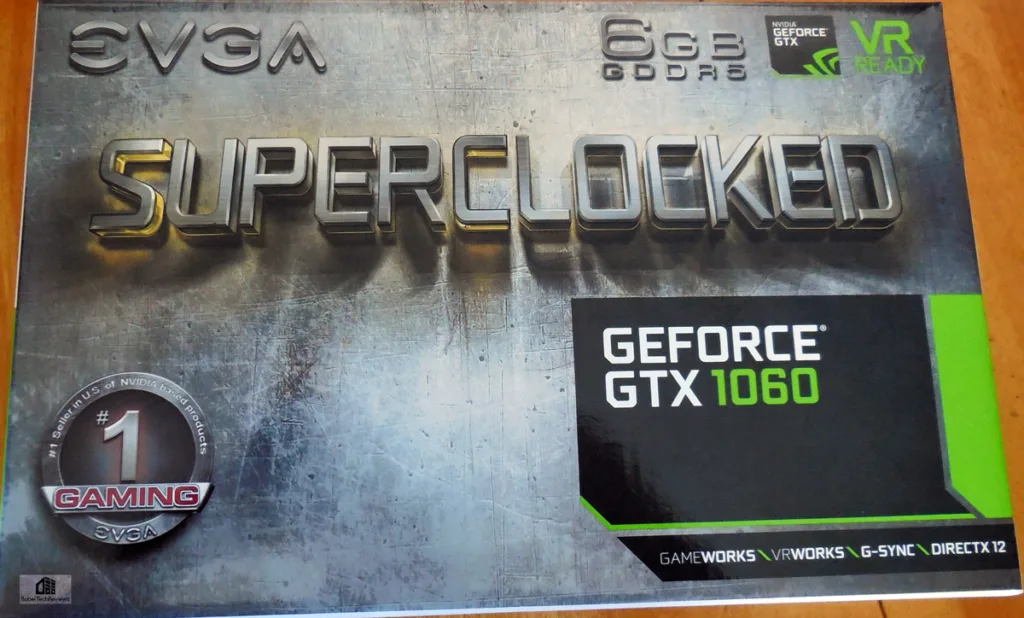 The sides and back of the box in several languages advertising its key features, as well as emphasizes the EVGA warranty and PrecisionX OC.
The sides and back of the box in several languages advertising its key features, as well as emphasizes the EVGA warranty and PrecisionX OC.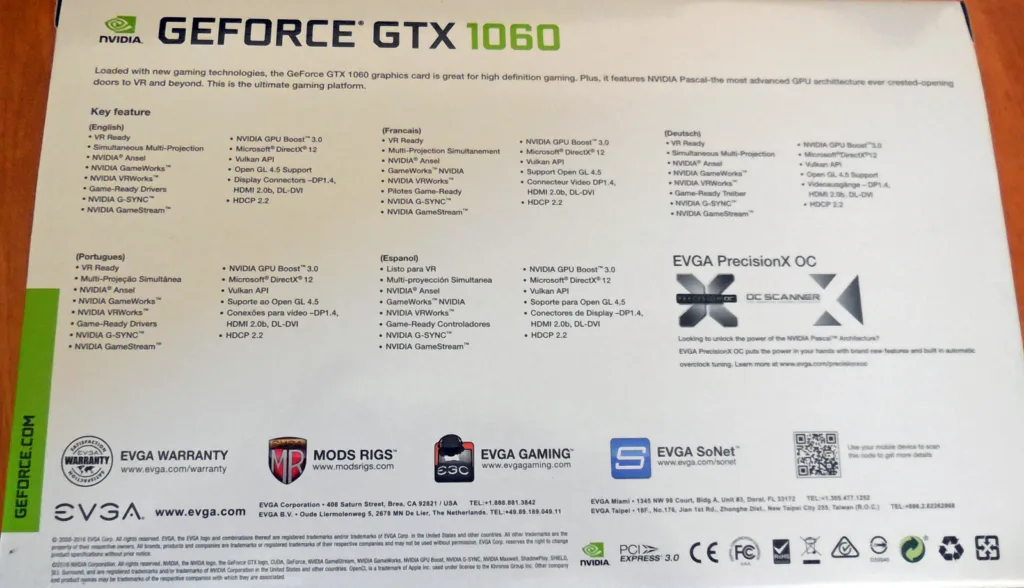
The side panels show the system requirements and the ACX 2.0 cooling:
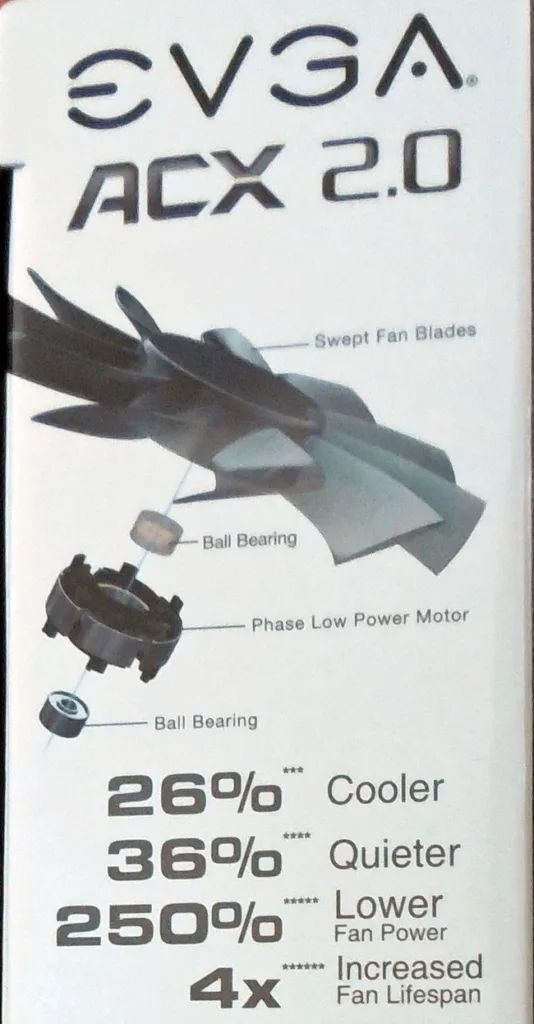
Here is everything out of the box.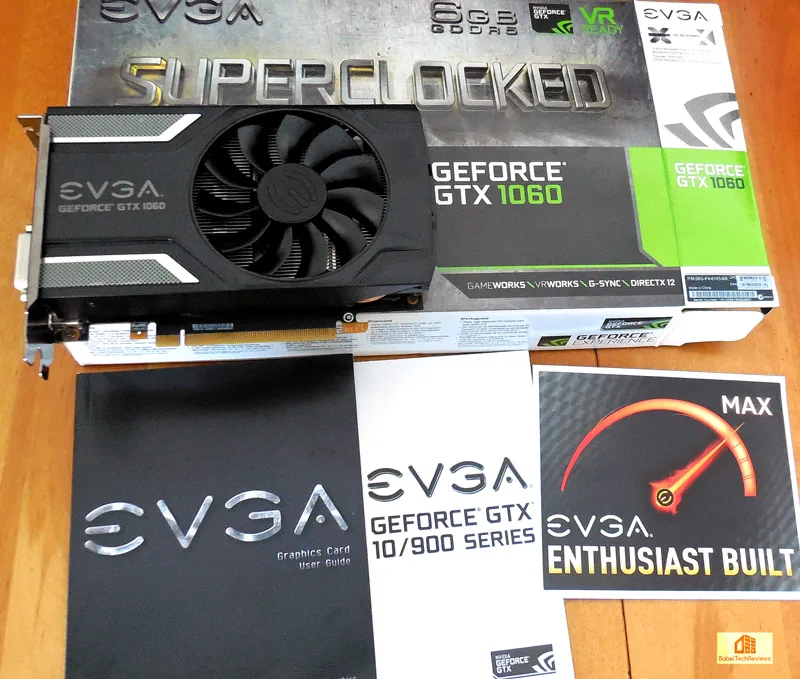 The card is packed securely and EVGA no longers uses a anti-static plastic clamshell which we always considered wasteful. Instead it comes in a anti-static bag. It comes with one large sticker, a “Powered by EVGA” metal decal for your PC (not shown), a user and an installation guide, and a very large “Arm Yourself with EVGA” poster (not shown).
The card is packed securely and EVGA no longers uses a anti-static plastic clamshell which we always considered wasteful. Instead it comes in a anti-static bag. It comes with one large sticker, a “Powered by EVGA” metal decal for your PC (not shown), a user and an installation guide, and a very large “Arm Yourself with EVGA” poster (not shown). 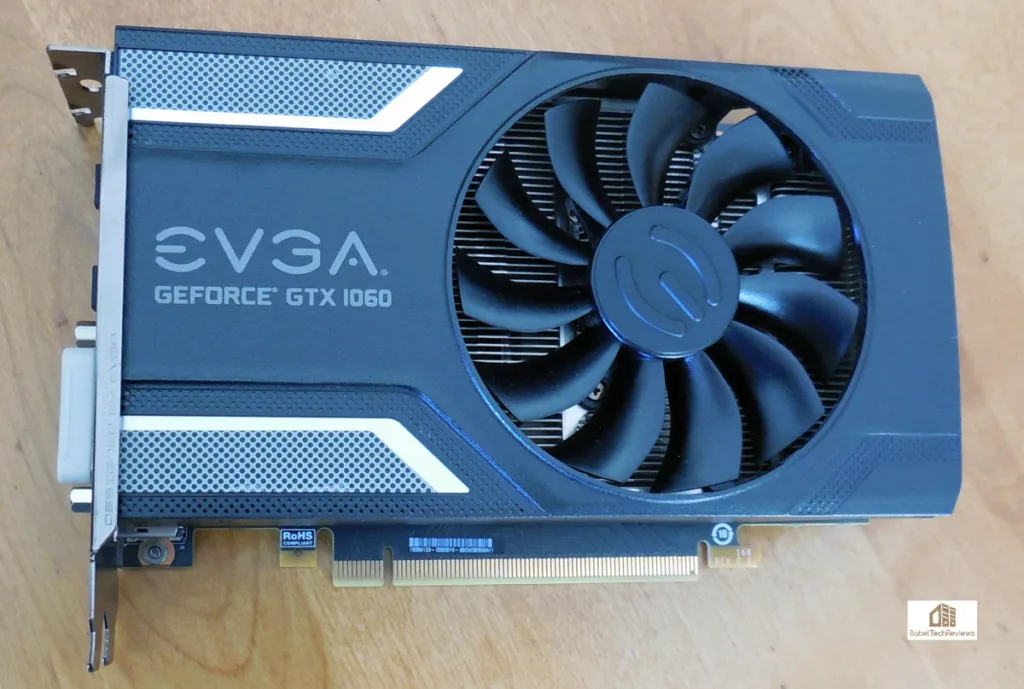 The EVGA GTX 1060 SC is a handsome short single-fan card that covers a large radiator. The large fan spins relatively slowly compared with the reference Founders Edition version’s blower. Of course, this makes perfect sense because a slower turning ACX 2.0 fan will remove the GPU heat better and more quietly, compared with a double speed single blower-style fan in the reference version.
The EVGA GTX 1060 SC is a handsome short single-fan card that covers a large radiator. The large fan spins relatively slowly compared with the reference Founders Edition version’s blower. Of course, this makes perfect sense because a slower turning ACX 2.0 fan will remove the GPU heat better and more quietly, compared with a double speed single blower-style fan in the reference version.
We turn the card on its edge and look at the slim design cooling fins which allow the card to fit into a PC motherboard’s double slot configuration. Besides the power from the PCIe slot, there is one 6-pin connector.
Here is a look from the other edge. The heatsink area is quite large for a very small card.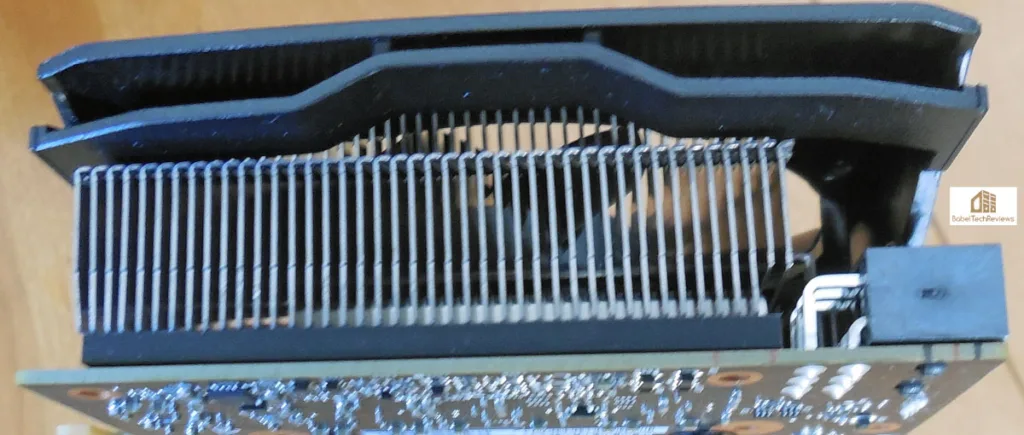
As you can see the EVGA GTX 1060 SC card is much shorter than the Founders Edition card. Turning them over, neither has a backplate.
Turning them over, neither has a backplate.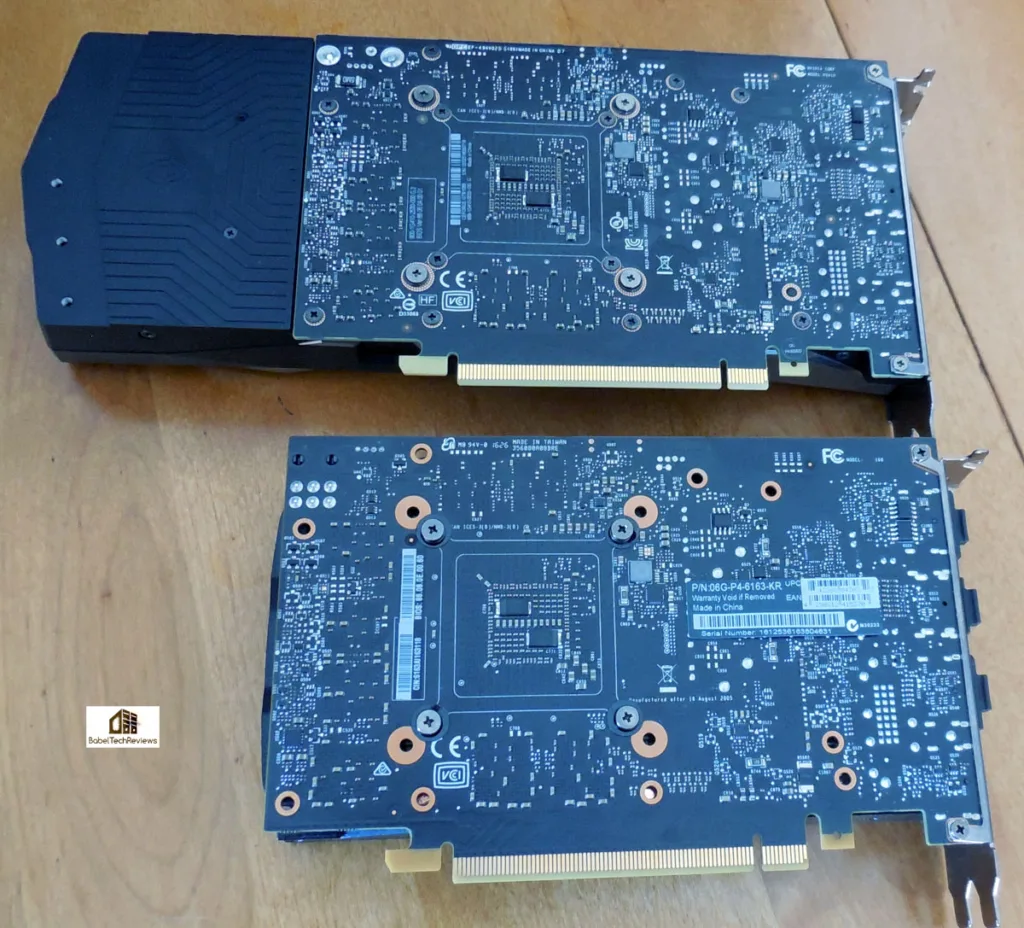
Another view.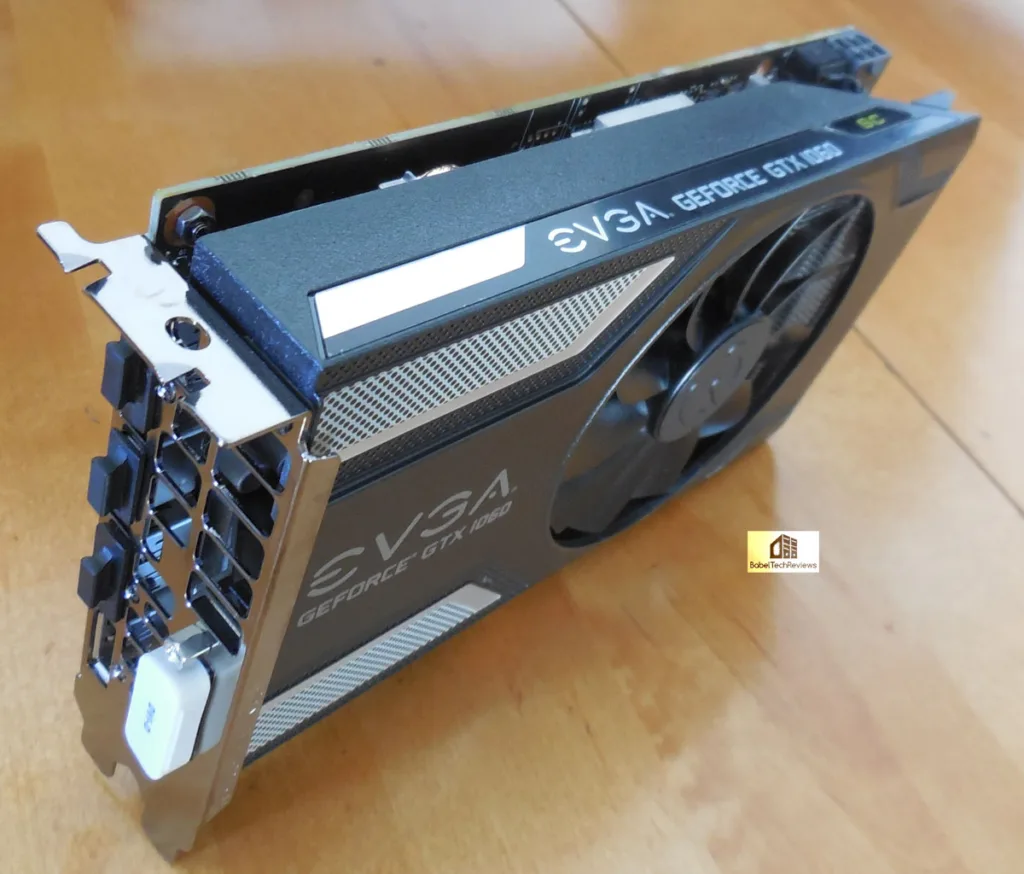 Here is the connector panel.
Here is the connector panel.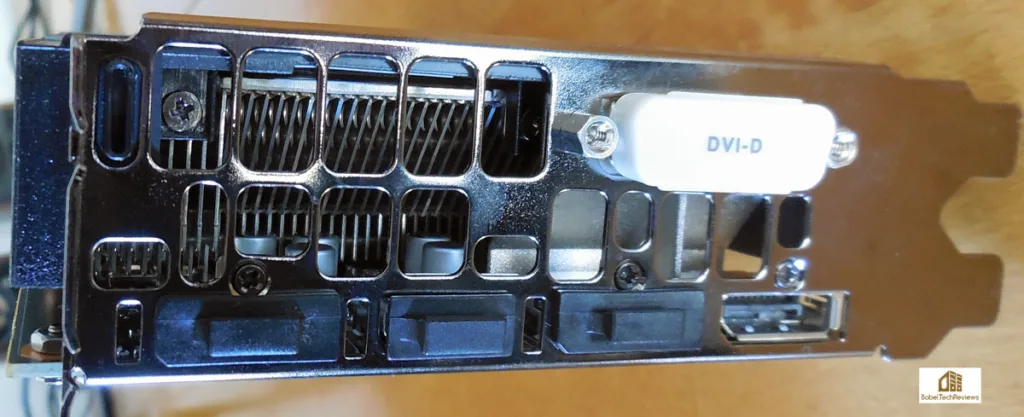 There are one dual link DVI port, 3 Display Ports and a HDMI 2.0 port. The EVGA GTX 1060 SC comes with covers for the connectors.
There are one dual link DVI port, 3 Display Ports and a HDMI 2.0 port. The EVGA GTX 1060 SC comes with covers for the connectors.
it is a handsome small card and the specifications look very good for the EVGA GTX 1060 SC, with some solid improvement over the Founders Edition by virtue of it being factory overclocked. Let’s check out its performance versus the Founders Edition and versus the RX 480 after we look over our test configuration on the next page.
Test Configuration – Hardware
- Intel Core i7-6700K (reference 4.0GHz, HyperThreading and Turbo boost is on to 4.4GHz; DX11 CPU graphics).
- ASRock Z7170M OC Formula motherboard (Intel Z7170 chipset, latest BIOS, PCIe 3.0/3.1 specification, CrossFire/SLI 8x+8x)
- G.Skill Ripjaws V 16GB DDR4 (2x8GB, dual channel at 3000MHz)
- EVGA GTX 1060 SC Gaming Edition ACX 2.0, 6GB, EVGA clocks and overclocked, supplied by EVGA
- GTX 1060 6GB, Founders Edition, stock clocks and overclocked, supplied by Nvidia
- GTX 1070 8GB, Founders Edition, stock clocks, supplied by Nvidia
- RX 480 8GB, Diamond reference version, at stock clocks
- RX 470 4GB, PowerColor Red Devil at reference stock clocks, supplied by PowerColor
- GALAX GTX 970 EXOC, 4GB, GALAX clocks, supplied by GALAX
- ASUS Strix GTX 960 OC, 2GB, ASUS clocks, supplied by ASUS
- PowerColor R9 280X, 3GB, reference clocks, supplied by PowerColor
- Two 2TB Toshiba 7200 rpm HDDs for each platform
- EVGA 1000G 1000W power supply unit
- Thermaltake Water2.0, supplied by Thermaltake
- Onboard Realtek Audio
- Genius SP-D150 speakers, supplied by Genius
- Thermaltake Overseer RX-I full tower case, supplied by Thermaltake
- ASUS 12X Blu-ray writer
- Monoprice Crystal Pro 4K
Test Configuration – Software
- Nvidia’s GeForce WHQL 368.81 used for the EVGA GTX 1060 SC and for the Founders Edition. GeForce 368.64, GTX 1060 launch drivers (identical in performance to the public WHQL 368.81) were used for the rest of the Nvidia cards (including for the FE overclocked results). High Quality, prefer maximum performance, single display.
- AMD Crimson Software 16.8.1 drivers were used for the benching AMD cards.
- VSync is off in the control panel.
- AA enabled as noted in games; all in-game settings are specified with 16xAF always applied
- All results show average frame rates including minimum frame rates shown in italics on the chart next to the averages in smaller font.
- Highest quality sound (stereo) used in all games.
- Windows 10 64-bit Home edition, all DX11 titles were run under DX11 render paths. Our four DX12 titles are run under the DX12 render path. Latest DirectX
- All games are patched to their latest versions at time of publication.
- Crimson Software’s WattMan was used for the RX 480 and the RX 470 to set the Power Limits to maximum.
- EVGA’s Precision XOC, reviewer’s version 6 used for Nvidia cards to set the Power/Temp targets to maximum.
- Unigine Heaven 4.0 was used to set preliminary overclocks
Synthetic
- Firestrike – Ultra & Extreme
- Time Spy DX12
- Crysis 3
- Metro: Last Light Redux (2014)
- Middle Earth: Shadows of Mordor
- Alien Isolation
- Dragon’s Age: Inquisition
- Dying Light
- Total War: Attila
- Grand Theft Auto V
- ProjectCARS
- the Witcher 3
- Batman: Arkham Origins
- Mad Max
- Fallout 4
- Star Wars Battlefront
- Assassin’s Creed Syndicate
- Just Cause 3
- Rainbow Six Siege
- DiRT Rally
- Far Cry Primal
- Tom Clancy’s The Division
- DOOM (*OpenGL)
- Mirror’s Edge Catalyst
DX12 Games
- Ashes of the Singularity
- Hitman
- Rise of the Tomb Raider
- Total War: Warhammer
Nvidia’s Control Panel settings:
Here are the settings that we always use in AMD’s Crimson Control Center for our default benching. The Power Efficiency Toggle is left off in our benching.
Let’s head to the performance charts to see how the stock RX 480 and RX 470 compares with the stock and overclocked GTX 1060s as well as compared with our other cards in the test bed.
Overclocking the EVGA GTX 1060 SC Gaming Edition ACX 2.0
Overclocking the Pascal GTX 1060s are not as easy as overclocking Maxwell architecture-based cards. We already overclocked the Founders Edition of the GTX 1060 with PrecisionX OC and you can read about methods and our results here.
We learned that experienced overclockers won’t want to bother with the PrecisionX OC scanner at all – except perhaps to rough in a quick overclock as a starting point. The main thing to remember if want as high an overclock as possible is to turn the voltage up to maximum, set the fan profile to “aggressive” or to 100%, and go from there.
You also need to remember that Pascal overclocking is highly temperature dependent. Keep your GPU cool and you will max out your overclock. Adding voltage is secondary – it only moves the limit up a bit – as the GPU’s BIOS controls it automatically, and it is best used to stabilize a marginal overclock.
This are the clocks that we get just above idle with everything set completely to stock with the Power/Temp Targets set to maximum.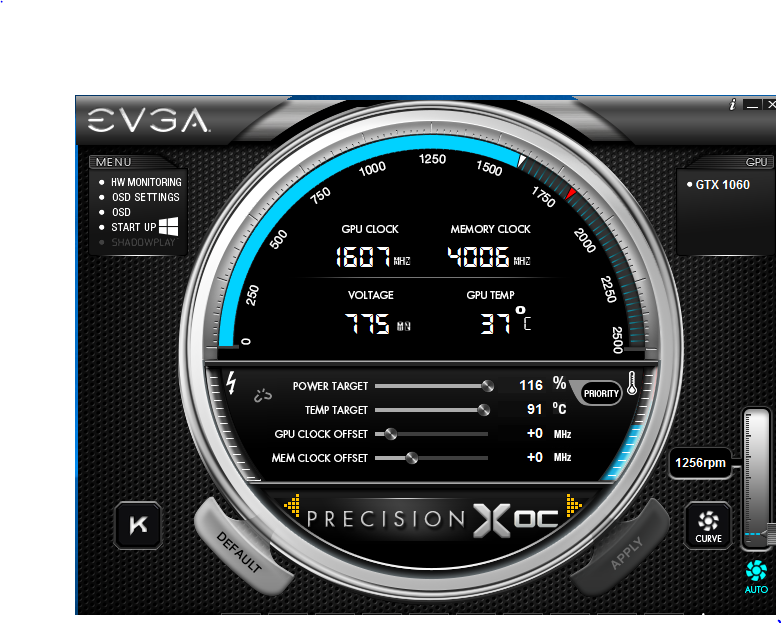
This is the maximum overclock that we achieved with the GTX 1060 Founders Edition by setting the fan to 100%, turning up the voltage to 100% and cooling our room below 72F:
We achieved a final stable overclock of +225 MHz to the core which settled in at or above 2088MHz with GPU Boost 3.0 for the majority of our benching as we kept our room cool for all of our game benchmarks. . . . Our memory overclock remained at +700MHz for its clock of 4704MHz which greatly contributed to increased performance.
The EVGA GTX 1060 SC’s card’s base clock is 1607MHz, up 101MHz over the reference Founders Edition base clock, and the EVGA boost clock is 1835MHz, 127MHz higher than Nvidia’s guaranteed minimum reference boost of 1708MHz. These are the clocks that we actually observed with our EVGA GTX 1060 SC with out of the box settings after looping Heaven 4.0 for at least one-half hour (Power/Temp Target set to maximum):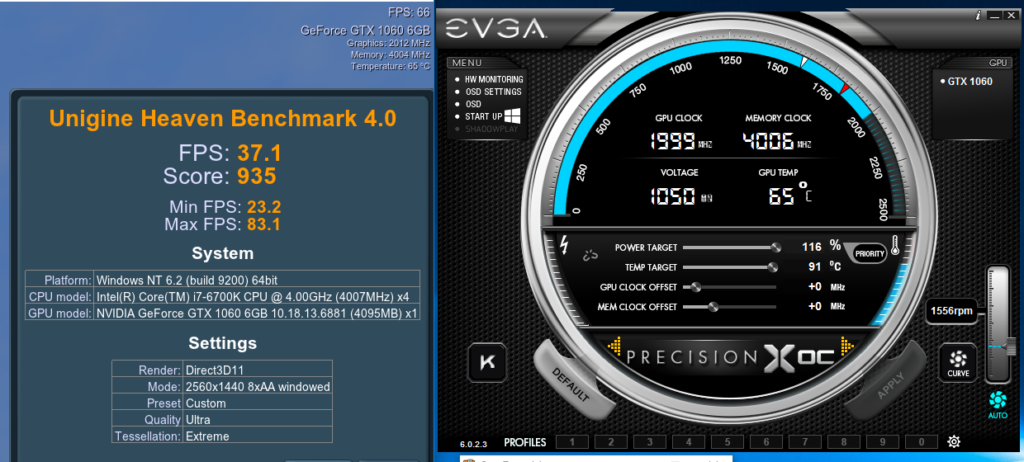
As you can see, the Boost 3.0 remains at 1999MHz with stock fan/voltage settings and only Power/Temp targets are at maximum and temperatures rose to a maximum of 65C in a warm room.
After spending hours incrementally overclocking our EVGA 1060 SC we settled on our maximum overclock.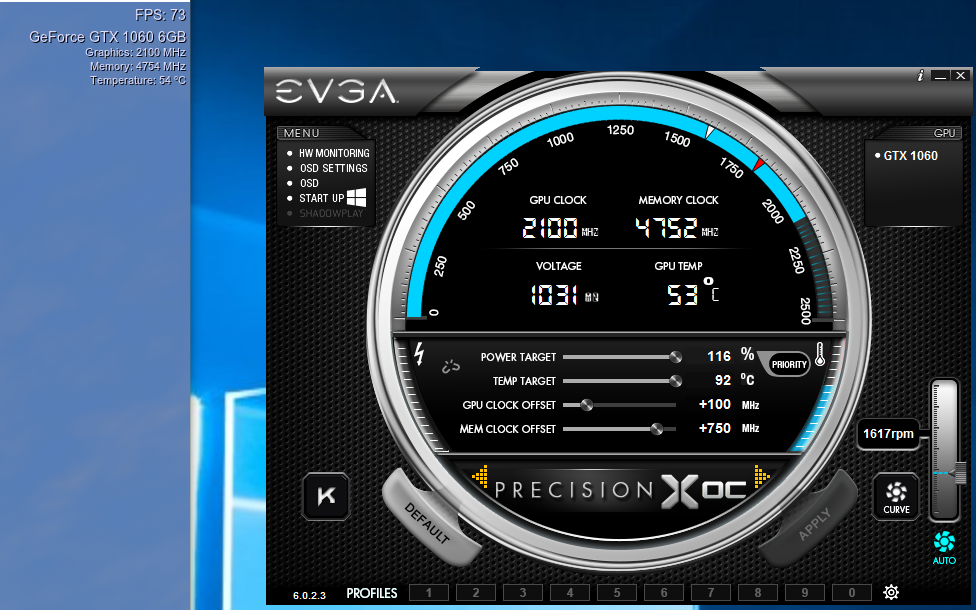
As in the screenshot above, we looped Heaven 4.0 continuously with a +100MHz core offset and +750MHz added to the memory. Ultimately, the memory was backed down to 700MHz and the voltage was set to maximum for complete stability, but the fan speed was left on automatic “Aggressive Profile”. Although the temperatures again rose to a maximum of 65C with the voltage set to maximum, the EVGA GTX 1060 SC never throttled in a warm (77F) room, but its core clock remained locked on at a steady 2100MHz and the memory clocks were 4752MHz.
In contrast, the Founders Edition of the GTX 1060 needed a 100% fan profile, a cold room (72F), and maximum voltage to reach the same +700MHz memory offset, but its core could not stay locked at 2100MHz, and it frequently dropped to 2088MHz as it throttled slightly. So the EVGA 1060 SC not only ran cooler with far less fan noise, it overclocked slightly better.
You can download PrecisionX directly here where you can download it for free.
Lets see how the EVGA GTX 1060 SC compares with the Founders Edition, with the RX 480, and with other competing cards of Summer, 2016.
Performance summary charts
The EVGA factory-clocked GTX 1060 SC vs. the reference Founders Edition and vs. the RX 480
All results except for Firestrike and Time Spy are expressed in average fps (in Bold) and also generally in minimum fps (where they make sense, in smaller font italics next to the averages). The stock EVGA factory overclocked GTX 1060 SC performance results are in Column 1 (in white text), the reference Founders Edition is in the second column (in black text), and the RX 480 is in the third column (in white).
As you can see, the factory-set EVGA GTX 1060 SC overclock brings a decent performance increase over the Founders Edition and its additional overclock pulls even further away from the stock RX 480 except for a very few games. Now let’s overclock both the SC and the FE as far as they can each go and compare our additional manual overclocks.
The Stock and Overclocked EVGA GTX 1060 vs. the Stock and Overclocked GTX 1060 Founder’s Edition
All results except for Firestrike are expressed in average fps (in Bold) and also generally in minimum fps (where they make sense, in smaller font italics next to the averages). The stock EVGA factory overclocked GTX 1060 SC performance results are in Column 1 (in white text), the SC’s overclocked performance results are in the second column (in Yellow text) the overclocked Founders Edition is in the third column (in white text), and the FE’s stock performance results are in the fourth column (in black).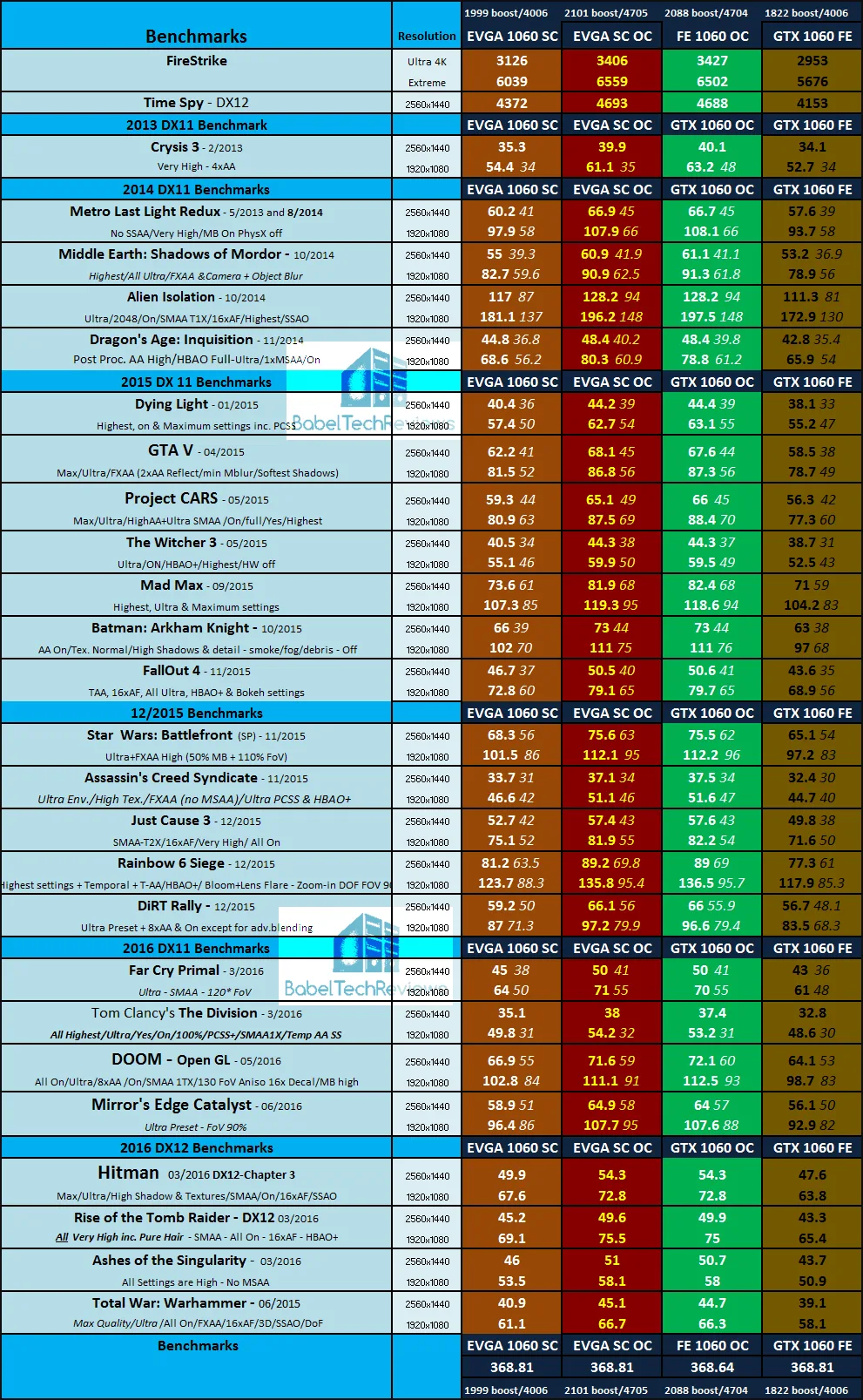
As you can see, there is almost no difference between both manually well-overclocked cards. Overall the overclocked EVGA GTX 1060 SC edges out the Founders Edition slightly, but benchmarking “noise” or margin of error obscures the results. The real difference lies in the SC not requiring a much colder room or 100% fan as the FE does. The EVGA GTX 1060 SC never throttles below 2101MHz and it remains much cooler and quieter than the Founders Edition during all benchmark runs.
The main summary chart: The Big Picture
This main summary chart is what we call, “The Big Picture” since it places our two main test cards into a much larger 10-configuration test bed. Driver revisions for each card are noted on the chart; GTX 1060 368.64 launch drivers are the performance equivalent of the WHQL 368.81 public release drivers. An “X” means the benchmark was not run. All results except for Firestrike and Time Spy are expressed in average fps (in Bold) and also generally in minimum fps (where they make sense, in smaller italics next to the average results).
Make sure to open this chart in another window or in a separate tab for better readability.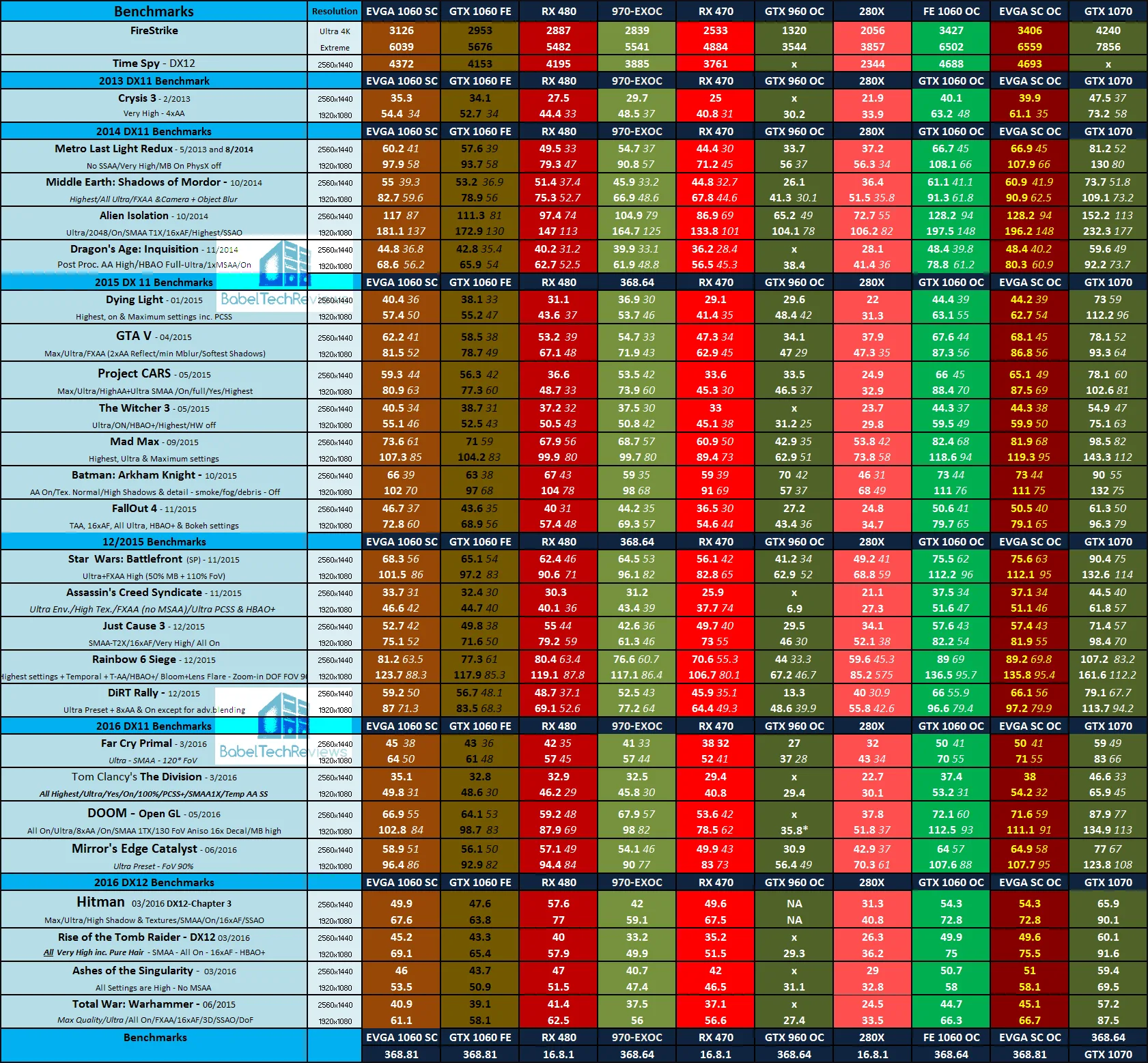
When we compare the $259 EVGA GTX 1060 SC against the $299 GTX 1060 Founder’s Edition, the value to performance gap may even widen further in favor of the EVGA card. And the reference GTX 1060 is generally faster than the reference RX 480 which costs only $10 less. The GTX 970 OC is in the $240 range but is slower than the GTX 1060, and the $199 RX 470 is in a class below the RX 480. The older R9 280X and the GTX 960 OC are not even in the running performance wise. And we also see that the overclocked GTX 1060s cannot catch the stock and much more expensive GTX 1070.
As an added bonus, the EVGA GTX 1060 SC is the quietest card of all tested and it runs much cooler than the GTX 1060 Founders Edition.
UPDATED 08/23/16. Check out Tech of Tomorrow‘s video using our benchmarks!
Let’s head for our conclusion.
The Conclusion
We have no trouble giving a big recommendation to the EVGA GTX 1060 SC Gaming Edition with ACX 2.0. At $259 it is small, it looks great, runs cool and is very quiet, and its out of the box performance is higher than the Founders Edition of the GTX 1060 which costs $40 more. The only reason one might choose a reference Founder’s Edition GTX 980 Ti at $299 instead is if one may prefer the “look” of the built-by Nvidia reference card.
The EVGA GTX 1060 SC runs cooler than the Founders Edition, costs less, is quieter and is built just as well from what we can tell. Unfortunately, the lackluster overclocking performance of the reference RX 480 in a similar price range at around $239 leaves it out of contention in our opinion. The EVGA GTX 1060 SC is faster and it overclocks better for only $20 more.
EVGA GTX 1060 SC Pros
- The EVGA GTX 1060 SC beats the $40 more expensive Founders Edition in performance and in quietness, and it also beats its RX 480 competitor at a similar price.
- With one 6-pin PCIe connector, TDP and power draw are good and it is very quiet in comparison to the reference GTX 1060 Founders Edition, especially when overclocked. It runs much cooler and does not require 100% fan to achieve the same maximum overclock. ACX 2.0 cooling is very effective for this card.
- Overclockability is excellent out of the box – GPU Boost 3.0 works as advertised.
- The card is well-built, looks great and fits into a smaller space than the Founders Edition.
- The GeForce Experience and GameWorks, including ShadowPlay, enhance the gaming experience. G-SYNC helps to smooth gaming framerates by syncing the display to the GPU and it allows for smooth framerates without stuttering or tearing.
- EVGA has excellent support and a 3-year warranty.
Cons
- It is out of stock at the $259 price.
The Verdict:
- If you are buying a fast video card right now and looking for good performance for a better than entry-level VR or for maxed out 1920×1080 or even higher resolution gaming, the EVGA GTX 1060 SC is an excellent choice. The GTX 1060 beats its competition the reference RX 480 at stock, it overclocks significantly better, and it uses less power.
- We would choose the EVGA GTX 1060 SC in every situation over the more expensive reference Founders Edition. It runs faster out of the box, it runs cooler, and it is quieter especially when overclocked.
- We would like to award the EVGA GTX 1060 SC BTR’s Good Value Award.
We do not know what the future will bring, but the EVGA GTX 1060 SC brings an excellent performer to the Pascal GeForce family and it clearly establishes itself as an excellent value. On top of this, the EVGA GTX 1060 SC is highly recommended for its excellent cooling and quietness as well as the great EVGA warranty and support.
If you currently game on an older generation video card, you will do yourself a big favor by upgrading. The move to a GTX 1060 will give you better visuals on the DX11 and DX12 pathways and the GTX 1060 is faster than the RX 480 and it overclocks better.
AMD offers their own set of features including Eyefinity 2.0 and FreeSync, but their Polaris RX 480 as represented by the reference version card, simply cannot touch the raw power of the GTX 1060 when it is overclocked.
Stay tuned, there is a lot coming from us at BTR. We are going to overclock our PowerColor Red Devil RX 470 this week, and we will also bring you GTX 1070 SLI versus the TITAN X. And we will also test the performance of Nvidia’s 372.54 WHQL drivers which came out yesterday.
Happy Gaming!
Mark Poppin
BTR Editor-in-Chief
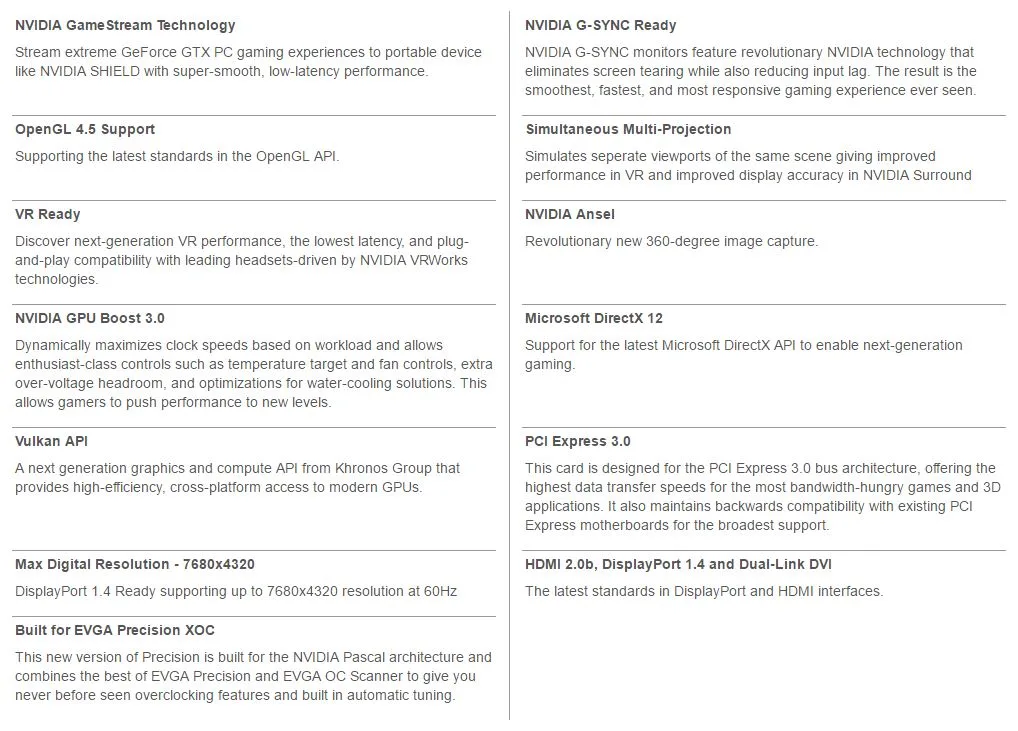

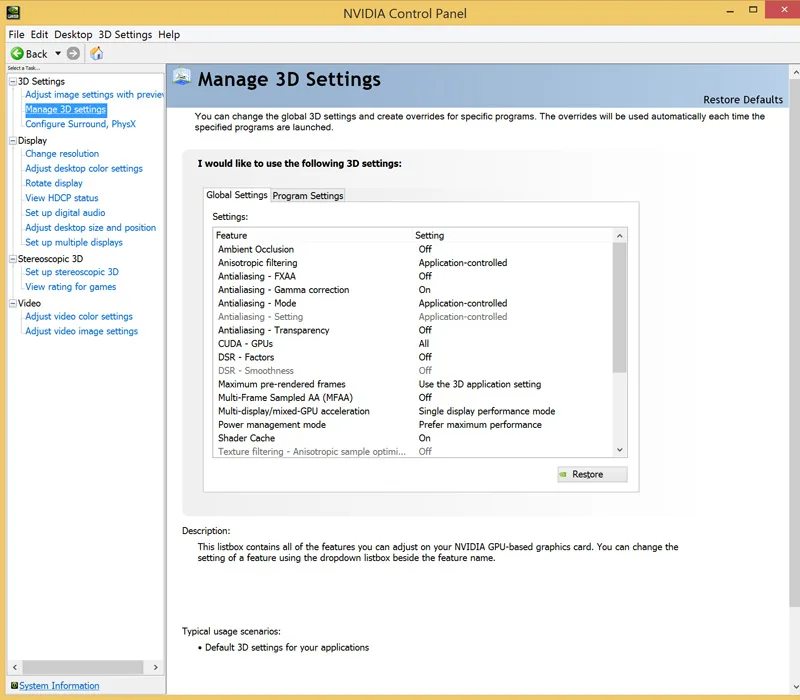
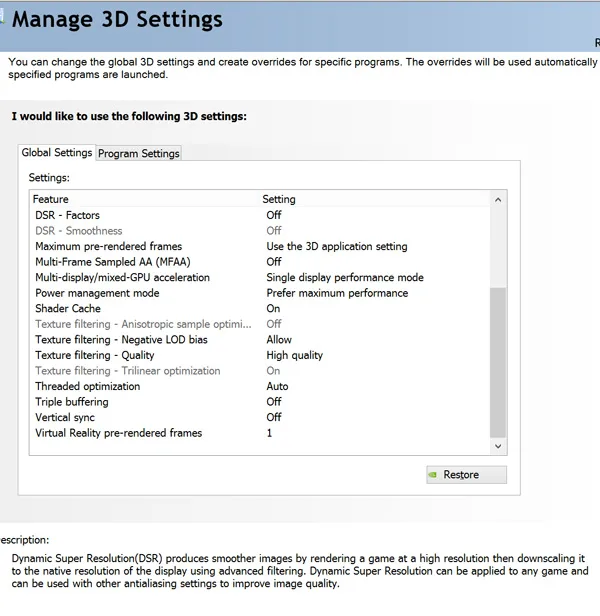
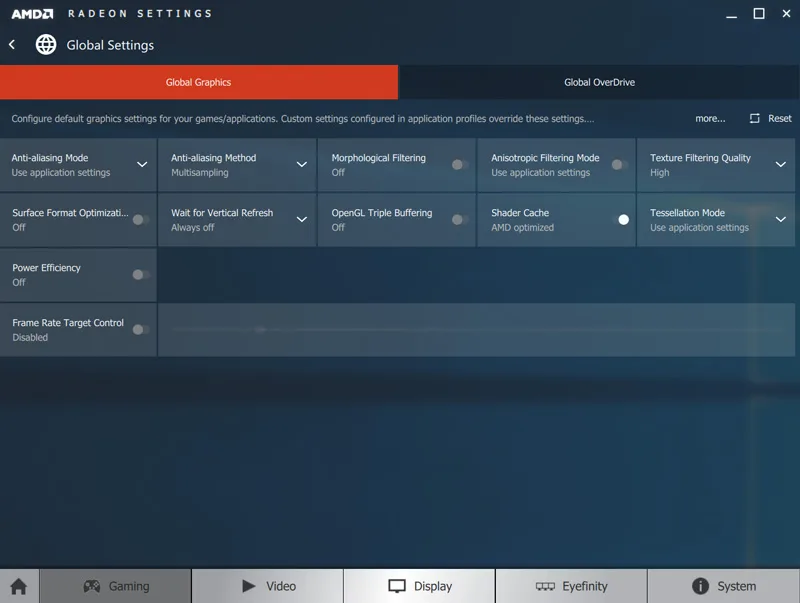
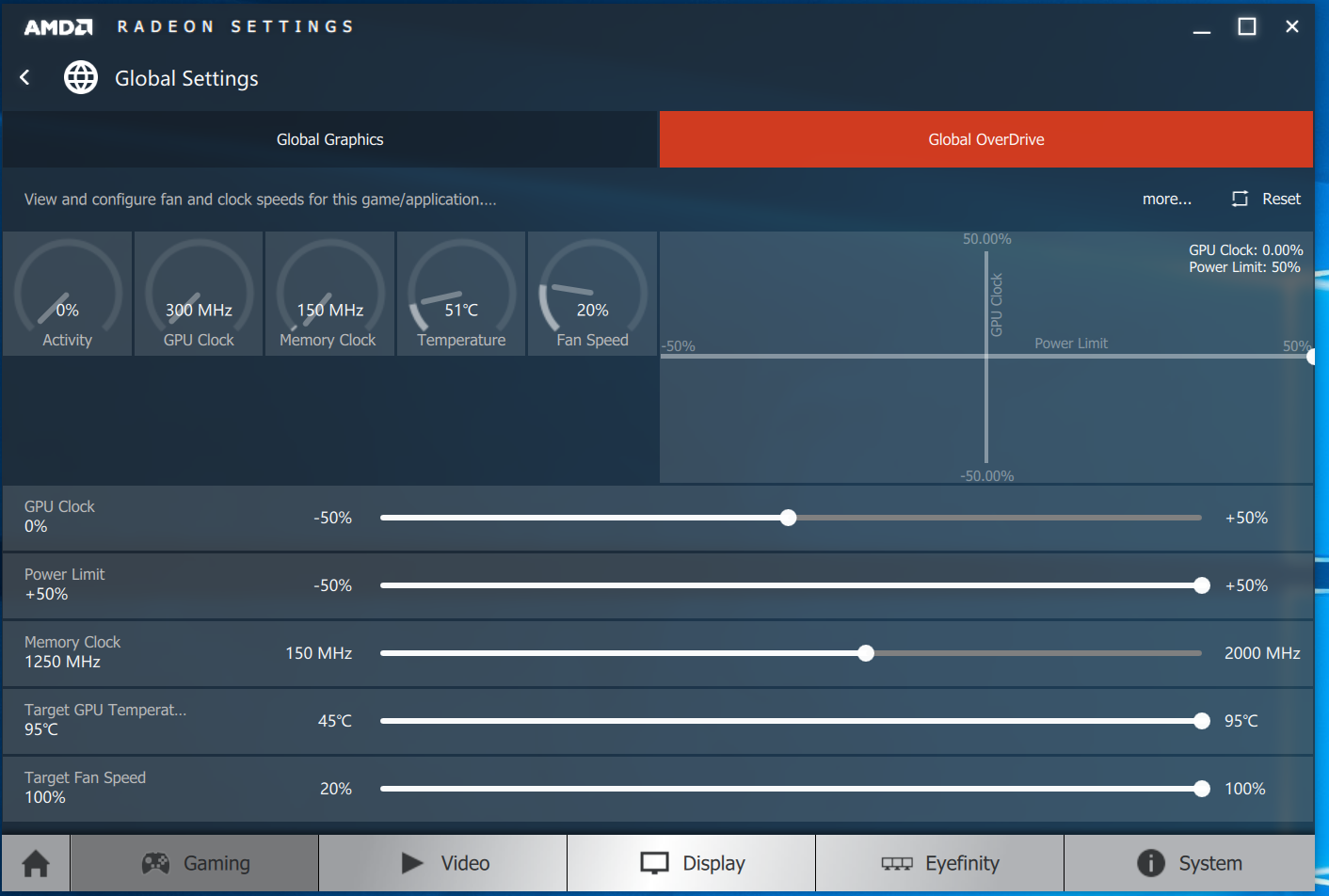
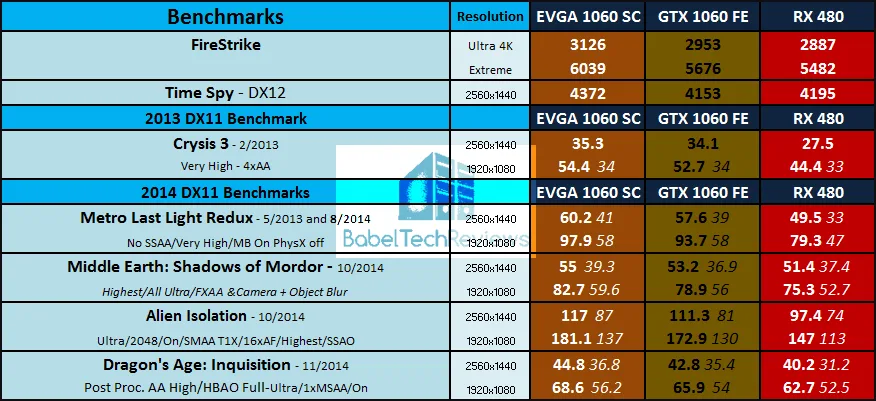
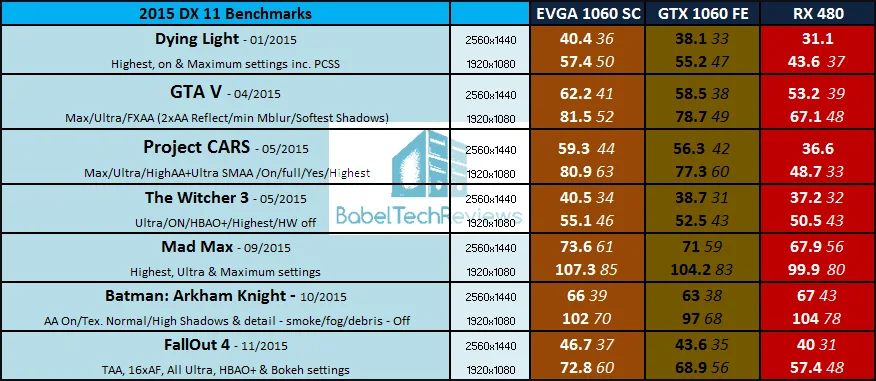



Comments are closed.